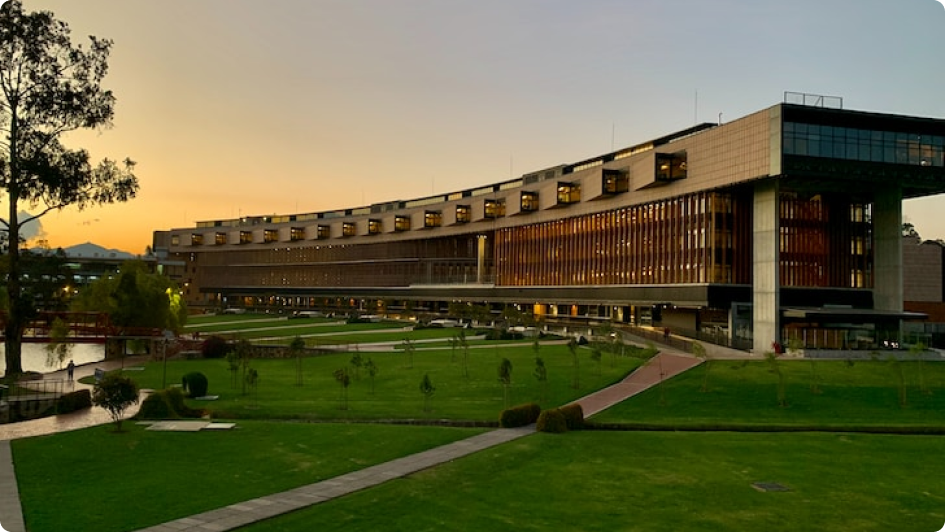BIOGRADMATCH
Technology for DEI in Biomedical Science
In an effort to increase diversity in the biomedical research workforce, BioGradMatch supports Black students with coaching and resources for the journey.


ABOUT THE PROGRAM
Building pathways for diverse students
Black scientists are grossly underrepresented
Black scientists are underrepresented in life science doctorates with only 6% awarded in 2018 and 5% over a 20-year period. In 2019, 276 Black students received doctorates in biological and biomedical sciences, only 4.3% of the total degrees awarded. Compared to the general population, 13.4% Black, it is clear—we have a problem.
The existing process leads to under-matching
Empirical studies illuminate the nuanced stories of Black students who sometimes lack confidence and communication skills necessary for developing effective relationships with faculty and mentors. The fear of poor scores on admissions tests, admissions denial, and the burden of taking on more debt sometimes prevent even academically competitive students from applying to a diversity of competitive graduate programs. Sometimes, they don’t apply at all, or just apply to a single option close to home. This can lead to adverse outcomes – including rejection from the only school where they may have applied leading to under-matching and shutting them out of industries where they could succeed.
HBCUs find success despite barriers
HBCUs award almost 18% of STEM degrees received by Black students and educate a third of all Black doctoral graduates despite facing challenges such as financial responsibilities outside of their fields of study.
PROGRAM PROCESS
Our platform is here to help
Participants receive education, resources, and a GradCoach to facilitate the application and graduate school exploration process. The end goal is for students to apply and be admitted into the graduate program that fits their research interests.
STEP 1
Undergrads share their goals
We survey undergraduate students about coursework, goals, and interests to pair them with graduate programs in the biomedical sciences that are strong fits, but may not be on their radar.
STEP 2
We match and provide resources
In addition to pairing students with potential programs, we share access to a large toolkit of resources, including exam prep, financial support and pathway guidance.
STEP 3
Undergraduates connect with graduate students
GradCoaches share information about their grad school experiences, serving as examples and support systems as students navigate the application process.
GradCoaches

Ashley Williams
University of Iowa
I am the Graduate Research Assistant for a Refugee Mental Health project called PM+. I am also a GRA for a project working to understand the unique needs of Black and Latino caregivers to those who have dementia or Alzheimer’s. Lastly, I am a GRA for a project focused on understanding cancer rates amongst Black people living in Waterloo, Iowa.

Stella Wilson
University of Alabama

Alex Kimbrough
Tulane University
I’m studying epidemiology, the study of disease distribution among human populations. My specific interest is infectious diseases (in particular HIV), and how they interact with cardiovascular health in our Black communities.
Partners

University of Alabama
Biology, Marine & Biological Sciences
Many biological disciplines are represented in this department, including ecology, cellular and molecular biology, systematics, marine science, microbiology and more. However, most of us use diverse approaches to our research, and our individual expertise may span several areas of biology. Most of us collaborate extensively on research with colleagues in the department and around the globe.

Texas A&M University
Toxicology, Genetics and Genomics
Toxicology, genetics and genomics research and training at Texas A&M has been recognized as a distinct discipline since the ’70s when the Texas Higher Education Coordinating Board approved an MS and PhD program in toxicology. The Program in Genetics is the main interdisciplinary PhD program in the Natural Sciences at Texas A&M University and offers research opportunities in a diverse range of specialties.

Tulane University
Population Health & Epidemiology
The Tulane University School of Public Health and Tropical Medicine has been a leader in the field of public health for more than 100 years.We have a strong focus on cardiovascular disease, health disparities, reproductive health, and disaster response and displacement, along with growing strengths in genomics, epigenetics, and other areas pursuing health at a very personalized level.
TESTIMONIALS
Their Stories


BLOG
Latest News

BioGradMatch recieves
At vero eos et accusamus et iusto odio dignissimos ducimus qui. Sed ut perspiciatis unde omnis iste natus error sit voluptatem accusantium doloremque laudantium, totam

BioGradMatch recieves additional funding from grant
At vero eos et accusamus et iusto odio dignissimos ducimus qui. Sed ut perspiciatis unde omnis iste natus error sit voluptatem accusantium doloremque laudantium, totam